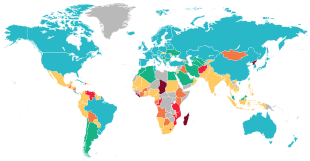New Delhi, Nov 18 (IANS): Developing countries face heightened vulnerability to antimicrobial resistance (AMR), a critical global health issue undermining the effectiveness of life-saving medicines and the management of infectious diseases, stated Saima Wazed, WHO Regional Director for South-East Asia, on Monday.
Marking World Antimicrobial Awareness Week (WAAW), observed annually from November 18-24, this year’s theme, “Educate. Advocate. Act now,” highlights the urgent need for collective action to combat AMR.
According to WHO, bacterial AMR directly caused an estimated 1.27 million deaths globally in 2019, with a further 4.95 million deaths linked to its impact. Wazed attributed the increased risks of AMR in developing countries to factors such as rapid population growth, limited healthcare access, and the misuse of antimicrobials.
“The urgency of tackling antimicrobial resistance (AMR) cannot be overstated,” said the Regional Director, highlighting how high population density, limited access to healthcare, and antimicrobial misuse exacerbate the risks and consequences of AMR.
She noted that this year’s World Antimicrobial Awareness Week (WAAW) follows two major milestones: the adoption of the 2024 Political Declaration on AMR during the 79th United Nations General Assembly (UNGA) High-Level Meeting on AMR and the 4th Global High-Level Ministerial Conference in Jeddah.
“This landmark declaration sets ambitious goals, including sustainable financing mechanisms to combat AMR, and aims to have at least 60% of countries implementing fully funded national action plans by 2030,” Wazed stated.
She called on the global community to act swiftly and decisively to address AMR, urging stakeholders to prioritize education on AMR, advocate for strong political and financial commitments, and take concrete measures to mitigate its threat.





